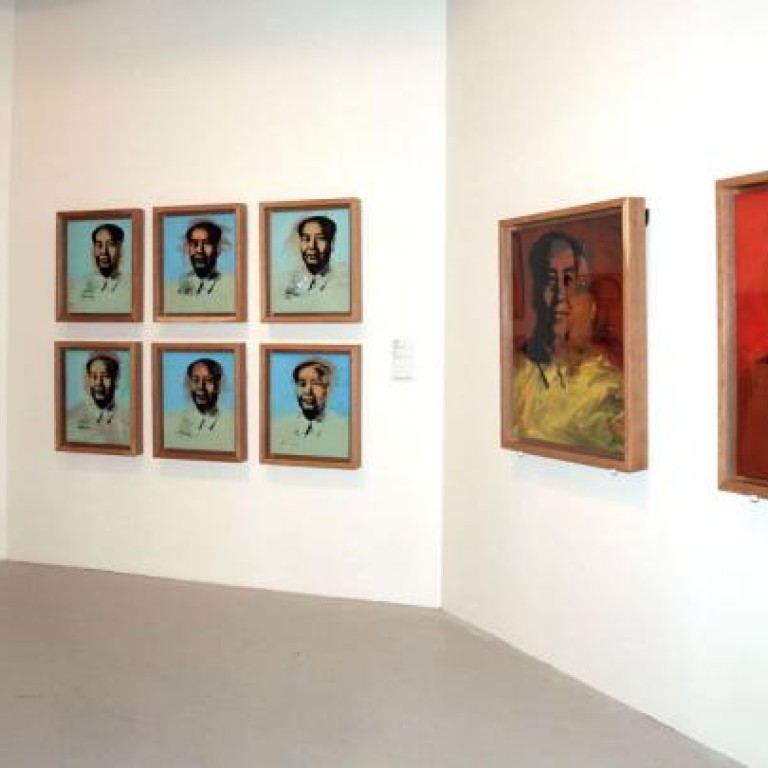
Censor's Warhol ban stifles creativity
When censorship is imposed from above according to fluid political taboos, instead of by reference to community values, it can have bizarre results. One is that an exhibition of works by pop artist Andy Warhol and a mainland film about relationships and sexuality find themselves in the same boat. The Ministry of Culture has ruled that Warhol's iconic silk-screen paintings of Mao Zedong must be excluded from the exhibition, now showing in Hong Kong, before it goes to Shanghai and Beijing. The State Administration of Radio, Film and Television has stalled release of the movie because it has gay characters and scenes of Lin Liguo, son of Mao's disgraced former right-hand man Lin Biao. This prompted a scathing attack on mainland film censorship in an open letter posted online by Beijing Film Academy professor Xie Fei, an artistic adviser on the film. Calling for a proper rating system, he criticised bans on long-past sensitive political incidents, ghosts, homosexuality, adultery and time travel.
Xie, understandably, is mystified about how scenes showing the Lins can be taboo 20 years after they were depicted in the 1992 film . Perhaps the bans reflect political sensitivity and caution during a generational leadership transition amid debate about economic and political reform that has already changed the face of Mao's China. Even so, it is a stretch to imagine that decades and generations of leaders after Mao's death, Warhol's paintings are politically nuanced. Or perhaps images of Campbell's Soup cans and Marilyn Monroe are not considered suitable company for the Great Helmsman.
If mainlanders want to see the full exhibition of 300 paintings, photographs and films they will have to visit Hong Kong. Thus, the only beneficiary of this decision is likely to be the city's Museum of Art, the local host of the exhibition. Taboos are to be found in all cultures. But when they are decreed at random from above they stifle creativity and the arts, and do nothing for the intellectual vibrancy of a rising China.
